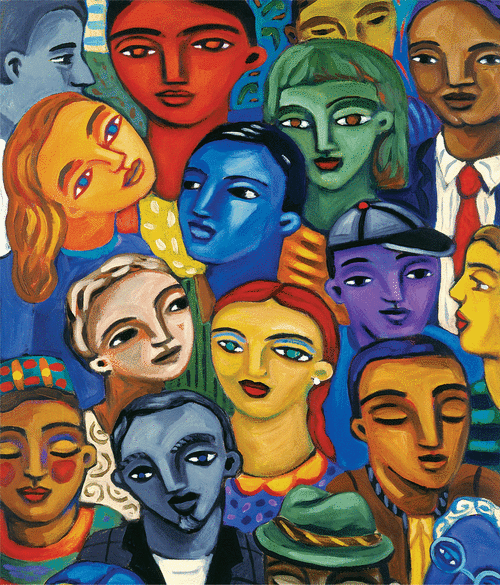Chapter Introduction

Although still young, this twenty-first century has dramatically reminded us that we are social animals whose lives and cultures revolve around how we think about, influence, and relate to one another.
On September 11, 2001, nineteen men with box cutters achieved a catastrophic violence that triggered fright, outrage, and a lust for revenge. But it also triggered an outpouring of compassion and care, including gifts of more money, food, clothing, and teddy bears than New Yorkers could possibly use. What drives people to feel such hatred that they would destroy thousands of innocent lives? And what motivates the heroic altruism of those who died trying to save others and of the many more who reached out to those coping with loss?
Echoes of these questions resurfaced after genocide plagued the Darfur region of Sudan beginning in 2003, and during the war in Iraq, where survey-based estimates of deaths ranged from 151,000 to more than 1 million from 2002 through 2006 (Iraq Family Study, 2008; ORB, 2008). What factors affect the decision-making of our world leaders? And how can we transform the closed fists of international conflict into the open arms of peace and cooperation?
This century has also challenged Americans’ preconceived notions about race, gender, and age. The unprecedented 2008 presidential contest involved a 60-year-old White woman (Hillary Clinton), a 46-year-old multi-ethnic man (Barack Obama), and a 71-year-old White man (John McCain). Knowing that a difference of but a few votes could change the course of history, donors contributed hundreds of millions of dollars in the hope of influencing people’s opinions. How do we form our attitudes, and how do those attitudes affect our actions?
As each day’s news has brought updates on acts of hate or heroism, defeats or victories, many of us have lived out our own experiences with love and loss. Why are we attracted to some people but not others, and what spurs friendship and romance?
Human connections are powerful and can be perilous. Yet “we cannot live for ourselves alone,” remarked the novelist Herman Melville. “Our lives are connected by a thousand invisible threads.” Social psychologists explore these connections by scientifically studying how we think about, influence, and relate to one another.